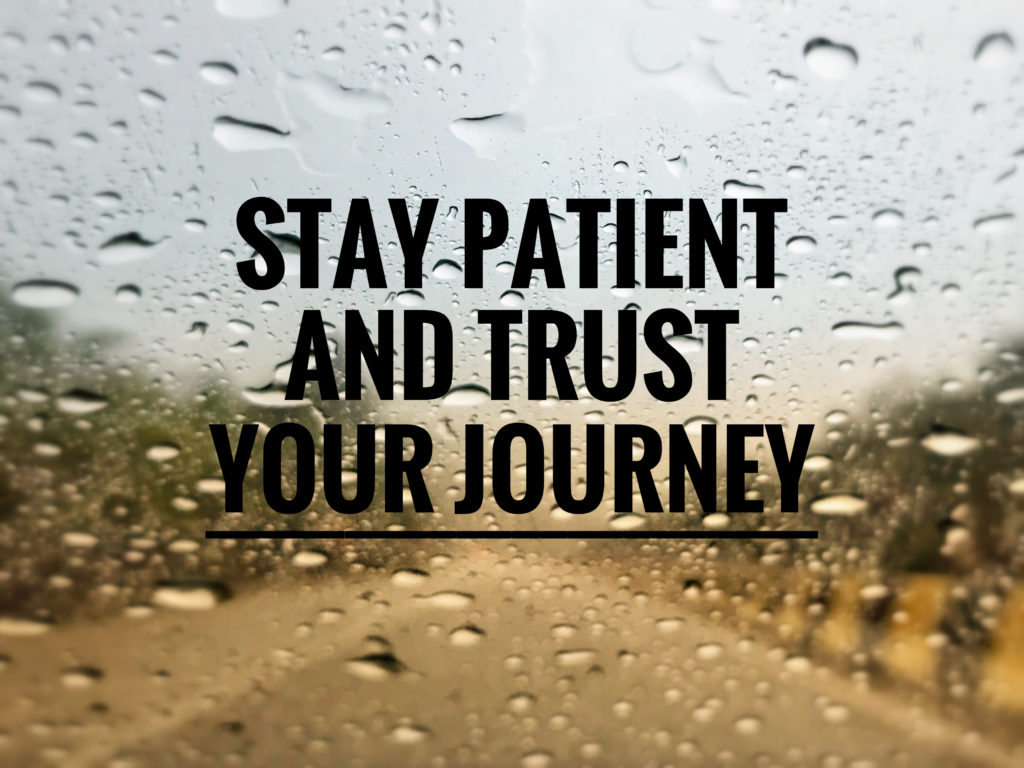Does Rehab Work or Not?
If you or a loved one is addicted to drugs or alcohol, you probably wonder– or even worry– what can be done about it?
How can you help them, if at all? Is there any way a doctor or professional can help them get sober?
Are they doomed to addiction forever?
There are a million questions, and seemingly no “for sure” answers. You might consider taking your loved one to go to counseling or support groups. Perhaps you continue pushing them towards treatment.
Then, even if they would be willing to go into treatment, there are the things to consider like finances, where they will go, how will the family afford it?
How will rehab treat them? What if they go to rehab and never come home? Does rehab work, even?
These are all quite common questions when considering a treatment plan for drug and addiction recovery. There are a handful of things to find when looking at potential rehab facilities. However, for this article, we will look at the reasons why rehab works, and on the other hand, why sometimes rehab does not work at getting a person sober.
Since this article focuses on the question, “does rehab work,” we won’t go over the what or why for addiction. You can read more about the reasons for addiction on other Prevail Intervention posts. We value your feedback drop a comment and share this article to help promote awareness!
Does Rehab Work: Willingness for Rehab and Recovery

The first, most obvious, but often overlooked strategy to know whether or not rehab will work? Your willingness for recovery. No matter how well-established, famous, expensive, or caring a particular rehab center may be, none of it will mean anything if you don’t genuinely care about getting sober! For example, if the most excellent, most intelligent, successfully world-renowned SAT prep instructor sat down to teach a student how to take the SAT, would the student pass? Yes, they could pass– but most likely only if they put in the work to study and practice. In the same way, it’s up to you on when and how to use the tools rehab offers.
That said, it’s also true that some rehab centers are garbage. Does rehab work at these poorly-run treatment centers? Probably not very well. Although there is an abundance of caring, helpful people in the world, there are also careless, selfish people. This difference in balance includes rehab and all areas of medical “help” professions. Some companies just don’t care about the services they offer, and would instead do the least amount of work to get paid. There are, on the other hand, some fantastic professionals with a passion for helping people get well. If you think rehab could be helpful for you, try to find one that has a trustworthy reputation and employees who love to help, people live better lives.
Does Rehab Work: A Change of Perspective
Most rehab centers– that is, inpatient or residential rehabs– allow the addict to live on site of their facility for some time. Whether that be 28 days, three months, or up to a year, rehab allows people who are trying to get sober to leave their usual living environment and focus solely on quitting drugs or alcohol. This opportunity can cause someone who is ready to change the much-needed space for detox, receiving understanding support and some time to reevaluate their life. Taking time to address hidden issues or past experiences in a safe setting can be life-changing.
Giving Up Your Influences
In addition to the change of perspective, rehab is a time when all the negative influences of life can temporarily fall away. Influences are people, beliefs, communities, entertainment, hobbies, and other things that affect how you live. Some significant influences of drug addicts are people in their social circle, drugs, and core beliefs. In order to get clean and stay sober, there are influences such as these which you will need to give up. You can’t stay clean if you think it’s okay to surround yourself with the very friends that got you into trying drugs in the first place.
Rehab centers know this, and it’s one of the main points of entering rehab. Get away from all the chaos and peer pressure that leads you to use and abuse drugs.
Changing Your Influences
Upon entering inpatient rehab, you not only give up specific influences. You also change your influences. The friends you enjoy getting high with won’t be there. You won’t have access to drugs. The drama at home won’t be there to be a constant stressor. The people you see at rehab daily, as well as the perspectives you learn there, can be new influences. Therefore, upon leaving rehab, it’s also a good idea to stay involved with supportive people you look up to. It is often said you become like the five people you spend the most time with. At any moment, you can choose to change your influences. Whether for better or worse, choose wisely.

Negative Perspectives
As we have seen, rehab’s chance at an eye-opening new environment can help people into recovery. That is to say, people who want to be in recovery. Comparatively, if you or your loved one going to rehab isn’t really interested in rehab, the change in environment can be negative. From the perspective of someone being pushed or “brought” into rehab by friends or family, they could feel trapped. Maybe they even feel rebellious, headstrong, and angry. In this situation, obviously attending support groups and therapy sessions wouldn’t be as helpful. Since there is resistance to treatment, it likely won’t work for them.
Does rehab work for some people in this situation? Could there be an inspiring or awakening moment for them to change their mind and get sober? Absolutely, yes. But more often than not, if someone doesn’t genuinely want something, they will not take it. In this case that would be the help for living sober.
Does Rehab Work: Different People, Different Needs
Another thing to consider when questioning whether or not rehab works is the individual needs of addicts. People struggling with addiction are all different. They can be from all walks of life, from the most luxurious to the most impoverished in the country. Ways of connecting with others may vary from person to person. Other things vary, such as how well they receive help, how hard they may be willing to work, how honest they choose to be in therapy, biased beliefs, and so on.
Most rehabs offer similar standard elements for successful recovery, but not all individuals can adequately follow that model. Some might need more space; others might need more active supportive involvement. One person may need Medication Assisted Treatment (MAT), whereas another person might need to detox entirely from all medications and substances. Some people might not even know what they need or want. That’s okay, though. This is why a lot of rehabs exist: to help you in your choice for recovery. There are tons of personal requirements that come into play, which is why it’s so important for rehab centers to work with each individual and vice versa.
Because people have different needs, you should at least know what rehab can provide.
What Rehab Can Offer:
- Detox: Medically-supervised detox to cleanse the body of drug dependency. Unassisted detox can be rather dangerous.
- Assessment: Rehab staff could run a few tests to see where your overall health is at. They will get to know you and your situation.
- Counseling and support groups: One of the main routines at rehab is counseling and support groups. Since addiction is seen as a mental health issue, psychological and emotional care is a priority. One-on-one therapy exists so you can focus on any struggles you might not want to share with anyone else. Group support is there to build relationships and remind each other you’re not alone.
- Consistent schedule: At rehab, there’s a daily or weekly schedule. Some are more relaxed than others. This helps the facility, as well as the patients, know what to expect each day. A schedule also teaches accountability.
- Recreation activities: Along with having a schedule, there’s fun activities and outings that take place. Sports, music, day trips, hikes, BBQs, and other events happen regularly. Recreation is a way to help regain confidence and have fun in a safe (drug-free) way.
- Education: Learning is another huge element of rehab. Classes and workshops are a great way to choose what to learn and perhaps practice in your life while getting sober.
- Family support: Family can still support you when you’re in rehab. If you’re local, they can visit you on designated days and talk to you on the phone.
- Self-care: Rehab can be a place to learn how to give yourself care in a healthy way. Instead of turning to drugs or alcohol, you can learn healthy coping habits. Willingness to treat yourself and your body well can change your whole mindset of abusing substances for escape.

What Rehab Cannot Offer:
- A magical “cure”: Just because you decide to go to rehab and cooperate through the program, doesn’t mean you’ll be magically cured of addiction. You still need to utilize what you know and do what you need to do in order to stay clean outside of rehab. Recovery is a lifelong process. You must do the work. You can do it.
- Lifelong sobriety: Maybe you get out of rehab, and you stay sober for an extended period. Awesome! However, you need to know the relapse prevention methods and take care of yourself. This way, you can prevent relapse.
- Free drugs: Rehab centers might prescribe drugs for those diagnosed with mental illness or physical health issues. However, this does not mean they hand out free drugs to you when you ask.
- Total freedom from yourself: As mentioned above, rehab isn’t a cure-all. If there are still issues that come up for you personally after rehab (and there likely will be), you can still work on those areas. Don’t think of rehab as a “checkbox” to legitimize your sobriety. Rehab can help you face your demons, but it cannot overcome them for you.
- Acceptance or forgiveness: There may have been people in your life who you have hurt. With drug abuse, there might have been some broken relationships along the way. Rehab is a place to learn to make amends with people you might have hurt. Although, this doesn’t guarantee all your relationships will be fixable.
Does Rehab Work: It’s Really Up to You
Does rehab work, or does it not work? It’s really hard to say. It does work for some addicts. For others, it might not work. The main truth we can agree on is that it can work. However, successful sobriety upon getting out of rehab isn’t a guarantee just by going to rehab and completing a program. Rehab can definitely give you and your loved one the support, tools, and advice you need to live a life free from addiction. In reality, it’s always the addict who has to put in the work.
If you’re addicted to something, you have to choose to acknowledge your problem to then become sober. Then you have to choose to stay sober. It’s highly likely with the support– first from yourself, then from others– you can succeed. The more support, the better. Although, some people never fully manage to obtain the desire to remain fully sober, no matter how many times they may be put in rehab. It’s important to go in with a mindset for recovery.
How to Answer the Question “Does Rehab Work?” for Yourself
If you are in need of some serious support and help in getting sober, rehab is a good place to focus on it. Receiving the help you need can make all the difference at the beginning of a recovery journey. Since everyone is different, it could take some looking into. Additionally, you could use some help even before entering rehab. You might need help even finding a rehab. If that’s the case, call our free addiction helpline. We can answer any questions and help you find a rehab for your specific needs. Prevail Intervention helps many families through the recovery process. Intervention help is available for families as well, if that’s the first step for you.
Further Resources for Families of Addicts and Alcoholics:
Interventions for Alcohol Abusers
Six Ways to Get Help for an Alcoholic
Top Ten Most Abused Drugs
Top 7 Books About Addiction and Sober Recovery
Medication-Assisted Treatment (MAT) – SAMHSA.gov
“Personality dimensions related to premature termination from an inpatient drug abuse treatment program”
“The effectiveness of Sobriety from Cocaine Addiction: Inpatient Care vs 24-Hour Hospital Stay”
“The Relation between Meaning in Life and the Occurrence of Drug Abuse”
